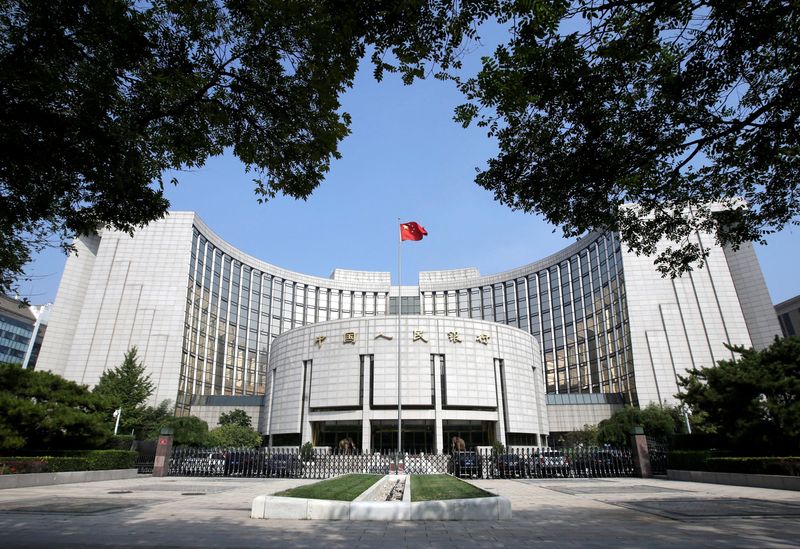BEIJING (Reuters) -China will step up policy support for the economy, central bank officials said on Wednesday, adding that the overall level of debt was expected to rise amid efforts to revive the slowing economy.
The remarks at a media briefing came against the backdrop of a pledge by Yi Gang, the governor of the People's Bank of China (PBOC), to keep monetary policy accommodative to support economic recovery.
"We will use various monetary policy tools in a timely and flexible manner, give better play to the dual functions of aggregate and structural tools, boost support for the real economy," said Ruan Jianhong, head of the statistics department.
The central bank will keep liquidity reasonably ample and push financial institutions to lower financing costs for firms, said Zou Lan, head of its monetary policy department.
"In the second half of the year, the economic operation still faces great uncertainty and instability," he added.
"We need to work hard to stabilise the economy and pay attention to the changes in the inflation situation."
Analysts polled by Reuters estimated that China's economic growth is likely to have slowed sharply to 1% in the second quarter from 4.8% in the period from January to March, suggesting policymakers may have to do more to spur growth.
In June, the interest rate on new corporate loans was at 4.16%, down 34 basis points from a year earlier, while the interest rate on new time deposits was 2.5%, or 16 basis points lower than the year-earlier period, Ruan said.
New bank lending in China leapt in June, rising more than expected, while broad credit growth quickened, as the central bank stepped up efforts to revive the pandemic-hit economy.
In the first quarter of 2022, China's macro leverage ratio, which measures the economy's overall indebtedness, was at 277.1%, 4.6 percentage points higher than the end of the previous year, Ruan said.
The leverage ratio will rise periodically because of slowing growth and counter-cyclical policies, but a recovery in the economy will create conditions for maintaining a reasonable debt level in the future, she added.
A recent move to allow policy banks to issue 300 billion yuan ($44.62 billion) in bonds will help some key infrastructure projects meet the minimum capital requirement of 20%, which will help speed up bank lending for such projects, Zou said.
Authorities have also given policy banks 800 billion yuan in new credit quotas to fund infrastructure projects.
The PBOC has worked with local authorities to maintain financial stability and monitor liquidity risks after uncovering problems at some banks in the central province of Henan, said Sun Tianqi, head of the central bank's financial stability bureau.
China will replenish capital for smaller banks and rein in the number of high-risk financial institutions, Sun said.

Some banks in Henan froze millions of deposits in April, leaving firms unable to pay workers and locking individuals out of savings, prompting protests in the province over the weekend.
($1=6.7236 Chinese yuan renminbi)